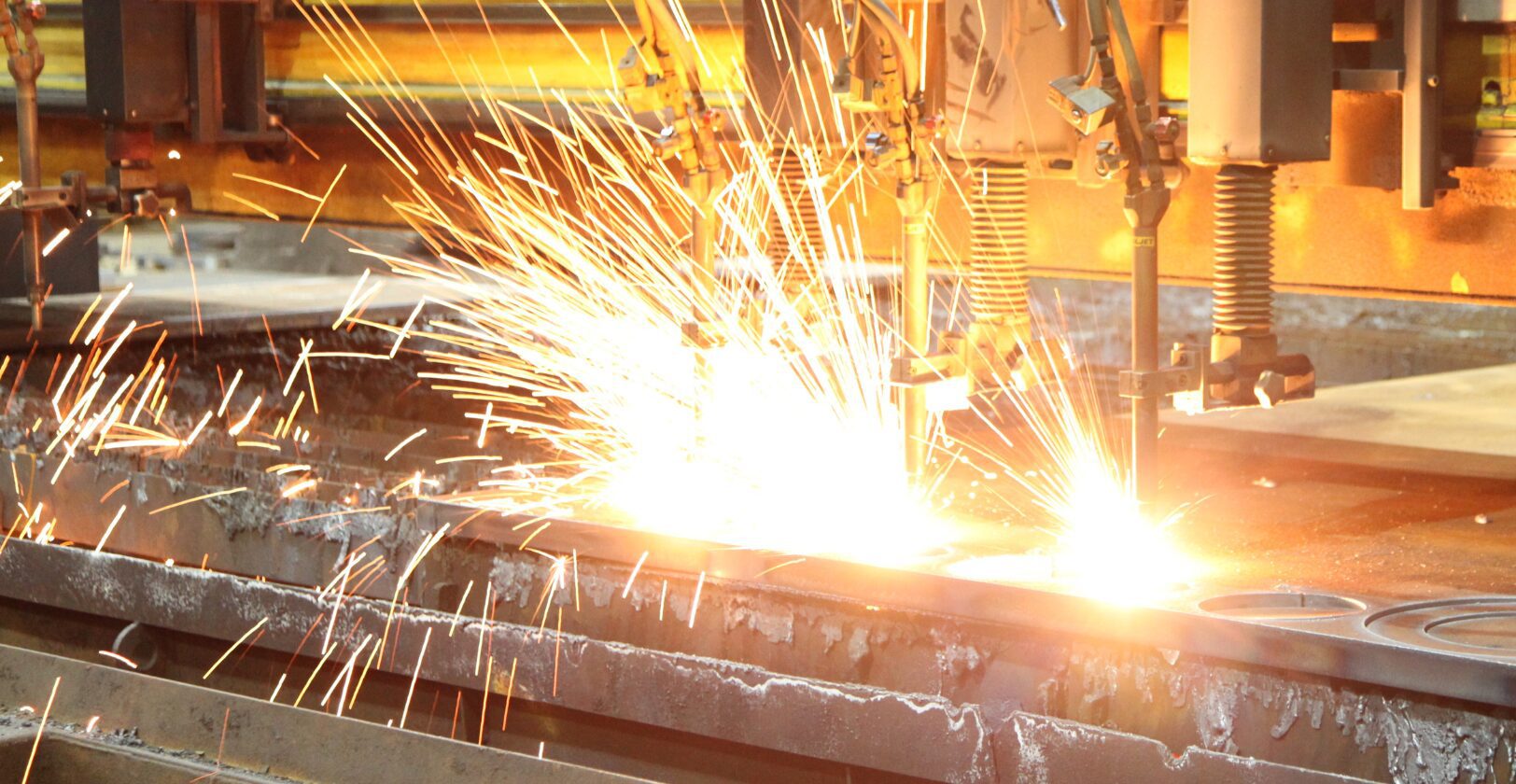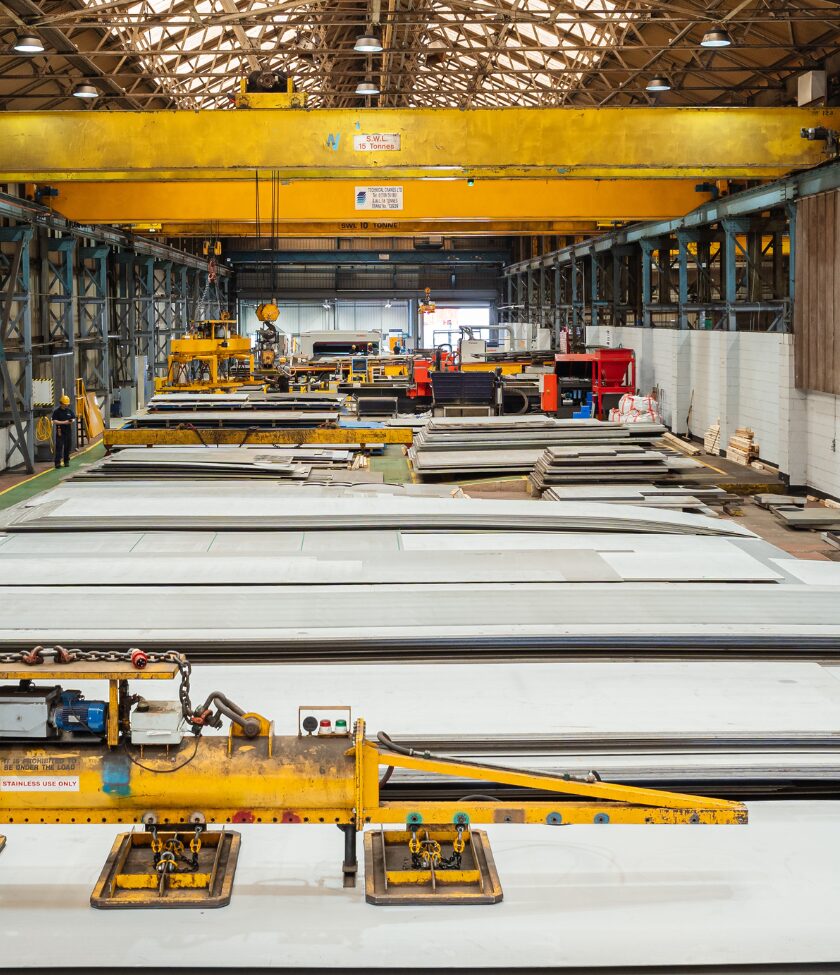Precision plate machining is the key to ensuring flawless component performance in the most demanding conditions. For industries such as energy or defence, component accuracy is vital, making this advanced process invaluable to craft components that meet exacting specifications.
By delivering unparalleled precision and maintaining structural integrity under intense operational stresses, precision plate machining is a critical factor in the success of high performance applications.
After all, in many of the most crucial applications, a single component failure can have potentially catastrophic consequences, making it essential that procurement specialists, engineers and manufacturers working in high stakes sectors have a good understanding of precision plate machining and its applications to ensure optimal performance for their components.
What is High Precision Machining?
Precision machining is a CNC process designed to remove excess material from a workpiece, producing components with exceptionally tight dimensional tolerances. This advanced technique relies on CNC (Computer Numerical Control) tools, guided by digital blueprints from CAD (Computer-Aided Design) and CAM (Computer-Aided Manufacturing) systems, to ensure every cut and dimension is executed with accuracy.
By combining high speed robotics, cutting edge tooling, and skilled operation, precision machining achieves unmatched consistency and repeatability. These qualities make it indispensable in industries where exactness is critical, delivering perfectly crafted parts that meet the most demanding specifications.
Which Machining Method is the Most Accurate?
For complex geometries and intricate details, CNC milling often provides the most accurate method. This computer controlled process utilises rotary cutters to shape material with exceptional precision, achieving tolerances that manual operations simply cannot match.
Key advantages of CNC milling include:
- High Precision: Achieves complex geometries with exact tolerances, eliminating human error from the machining process.
- Versatility: Suitable for a wide range of materials, including carbon steels, stainless steel, alloy steels and advanced composites.
- Scalability: Efficiently produces both single prototypes and high-volume production runs whilst maintaining consistent quality.
Brown McFarlane’s advanced CNC milling capabilities can handle workpieces up to 3,900mm in length, 1,950mm in width and 1,000mm in height. This makes us well equipped to produce large scale industrial components with precision and efficiency.
Our other precision machining capabilities include:
CNC Turning
Complements milling operations by focusing on cylindrical components. This process rotates the component whilst a precision cutting tool removes material, creating precise cylindrical parts with excellent surface finishes. Our CNC turning machines can accommodate pieces up to 400mm in diameter and 1,200mm in length.
CNC Drilling
Brown McFarlane delivers precise hole-making capabilities, ideal for assembly and fastener insertion. Using advanced CNC drilling systems, we can drill holes up to 34mm in diameter in steel plates up to 150mm thick. Our process ensures no heat-affected zones, meeting EN1090 Execution Class 3 and 4 requirements, maintaining the structural integrity of the material, no matter the application.
What is the Difference Between Machining and Precision Machining?
The distinction between standard machining and precision machining lies in tolerance requirements, surface finish quality and application complexity.
Standard machining typically achieves tolerances of +/-0.25mm (equating to 0.010 inches), which is suitable for general manufacturing applications where high precision is not as critical. It is commonly used for producing parts in bulk.
Some precision machining methods, however, operate within much tighter parameters, often achieving tolerances as small as ±0.0001 inches. This level of accuracy is essential for industries such as defence, energy and electronics, where even the smallest deviation can impact performance, safety or functionality. Additionally, precision machining often produces superior surface finishes, making it ideal for custom components that require smoothness, durability or aesthetic quality.
Other advantages of precision machining:
- Reduction of Waste and Cost Efficiency
- Improved Component Durability
- Performance Under Extreme Conditions
- Higher Quality and Consistency
How Accurate is CNC Machining?
The accuracy of CNC machining is influenced by several factors, including the type of machinery used, quality of the tooling and the material being processed.
At Brown McFarlane, we utilise the latest in CNC machine technology, equipped with multi-axis capabilities, automated tool changers, and real-time quality monitoring systems, our dedicated precision engineering facility ensures exceptional performance, consistency and efficiency across every project.
For example, our standard CNC setups deliver tolerances ranging from ±0.005 to ±0.008 inches, meeting the needs of most applications. However, for more demanding projects, our precision machining capabilities achieve even tighter tolerances, tailored to specific requirements.
Which Industries Benefit From Precision Plate Machining?
Aerospace Industry
Aircraft components demand exceptional precision and reliability. Engine parts, structural components and flight critical systems require tolerances that ensure perfect fit and function under extreme conditions.
Nuclear Industry
Nuclear applications demand components that can withstand radiation, extreme temperatures and pressure whilst maintaining dimensional stability over decades of service. Precision machining of specialised alloys ensures safety critical systems operate reliably.
Oil and Gas
Components for drilling equipment, pipelines and refinery systems must withstand high pressures, corrosive environments and extreme temperatures. Precision machining ensures these components maintain structural integrity throughout their operational life in oil and gas applications.
Defence and Military
Military and defence equipment operates in harsh environments where component failure isn’t an option. Precision-machined components for weapons systems, armoured vehicles and communication equipment must perform consistently under extreme conditions.
Frequently Asked Questions
What materials can be precision machined?
Precision machining handles a wide range of materials including carbon steels, stainless steels, tool steels, aluminium alloys, titanium and superalloys. Each material requires specific cutting tools, speeds, and techniques to achieve optimal results.
How long does precision machining take?
Machining time depends on component complexity, material type and tolerance requirements. Simple components might be completed in hours, whilst complex multi-axis parts can require several days. CNC automation allows continuous operation, reducing overall project timelines.
What factors affect machining accuracy?
Machine condition, tool quality, workholding rigidity, environmental conditions and operator expertise all influence machining accuracy. Temperature control, vibration isolation and proper machine maintenance are essential for achieving tight tolerances.
Can precision machining be cost-effective for small quantities?
Yes, CNC machining eliminates many of the setup costs associated with traditional manufacturing methods. Once programmed, CNC machines can produce small quantities economically, making precision machining viable for prototypes and low-volume production.
Partnering with Precision Machining Experts
Precision plate machining has become indispensable for industries where component performance directly impacts safety, reliability, and operational success. The combination of advanced CNC technology, sophisticated quality control systems and expert craftsmanship ensures that components meet the exacting demands of high-performance applications.
Brown McFarlane brings over 100 years of steel processing experience with state of the art CNC machining capabilities to deliver components that exceed expectations. Combined with one of the most extensive and diverse ranges of high quality steel plates in Europe, we offer an all in one solution for your next project.
Our quality first approach includes:
- ISO 9001, 14001, and 45001 certifications ensuring systematic quality management
- EN1090 Execution Class 4 compliance for structural steel applications
- Full material traceability from mill certification through final inspection
- Advanced measurement capabilities for dimensional verification
Contact our expert team today to discuss your specific requirements and discover how our products, plate processing services and industry expertise can ensure optimal performance for your operations.



